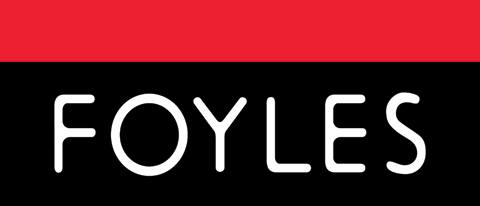The essence of our humanity is tested
not in the calm but in the storm.
– Piers Fallowfield-Cooper
Leaders today are navigating increasingly complex landscapes, where decisions must often be made rapidly and with incomplete information. There’s a near permanent tension between the need for swift action and the ethical considerations that guide good leadership decisions. In both the business world and human society generally, leaders are frequently confronted with situations where the line between right and wrong is not simple but blurred, and the consequences of their choices can have wide-reaching impacts.
Given these complexities, how can leaders make responsible, thoughtful decisions in moments of crisis? What principles should guide their actions when faced with the immediate need to intervene, whether in environmental matters, societal issues, and generally within their organizations?
My question for you: how do we act in the moment, and what guides our decisions?
The Caped Man in Cape Town
On a night when the Cape Doctor howled its relentless gusts through the streets of Cape Town, the scene was set for an encounter that would linger in my memory long after the winds had calmed. The city, known for its breath-taking beauty, also harbours nights of wild, unforgiving weather. Amidst this tempest, a figure emerged, one that seemed to dance with the wind itself – a young man, tall and slender, his large coat billowing behind him like a cape, cutting through the gale with an almost theatrical grace. He appeared, for a moment, as a character plucked from a stage, a modern-day Don Giovanni or a mysterious caped crusader, navigating the empty, wind-lashed streets.
***
In Cape Town, the raw beauty of nature meets history’s complex tapestry – the drive from Camps Bay to Hout Bay, fifteen breath-taking minutes, presents a daily-changing vista that could arguably be the world’s most beautiful journey. This is a place where each day is painted anew by the light’s whims.
South Africa is a country of contradictions, rich with history yet facing modern challenges. Cape Town’s warm and dry climate, people, food and wine, the city’s history and culture are all fascinating. It’s a land that has learned to forgive its past, teeming with a young and hopeful populace, despite the shadows cast by deep governmental flaws.
Since my initial visits, beginning just post-apartheid, drawn by the climate and the vibrant cultural tapestry, I’ve witnessed the evolution of this ‘rainbow nation’. I’ve been captivated annually by the warmth of its people and the unparalleled natural beauty.
Life here is nuanced. Security is an always visible concern, yet there’s an underlying spirit of community and resilience. Engaging with locals, from the lively Waterfront to the casual interactions at urban Sea Point or trendy Woodstock reveals the true heart of Cape Town. The city, a crucible of cultural diversity, reflects the strength found in its varied heritage.
In Cape Town, wisdom lies in navigating its complexities with a blend of awareness and openness. Here, each day is a blend of natural splendour and human resilience, teaching that the essence of a place is found not just in its scenery but in the spirit of its people.
***
Fast forward to a sun-drenched day, the chaos of the night seemed a world away. The streets of Cape Town were alive with the usual hustle, bathed in light, the stark contrast to the previous night. There, by the roadside, the same young man appeared again, this time, barefooted. The daylight stripped the mystique, revealing his attire to be worn, second hand clothes and his movements now marked by a limp. His once majestic cape now revealed as nothing more than an old, oversized coat, his silhouette less a figure of elegance and more a testament to resilience.
The juxtaposition was startling.
The night’s cloak of darkness had given way to the bright light of day, unveiling the harsh realities faced by many in this city of contrasts. Here was a man, who I had seen as an almost mythical figure, now revealed to be battling the very real challenges of existence. The encounter took an unexpected turn when ‘Camps Bay Patrol’ – one of the many local private security companies, paid for by residents, likely addressing some minor disturbance, moved him on from whatever brief respite he had found. The realisation dawned on me that the majestic figure from the night before was, in reality, navigating a life of precarious uncertainty.
Compelled by a sudden impulse of humanity and overriding the dehumanising messages of the locals “don’t give them money, it only encourages them” I went to find where he had gone. The interaction was brief: a gift of money, some food, a shared glance – a moment of connection in the vastness of human experience. It was a small gesture, but in that instant, the stark divide between our worlds became painfully apparent. This young man’s reality was a daily struggle for survival, a narrative far removed from the tourists and the flashy cars in Camps Bay that paint only one side of Cape Town’s story.
The encounter left me reflecting on the broader picture, the societal contrasts that define not only Cape Town but global humanity. Here in South Africa, unlike my home in the UK, the safety nets are sparse; the societal structures that catch those who fall are far from universal. It underscored the profound truth that, while we can momentarily aid, the systemic issues remain, and individual acts of kindness, though necessary, are but drops in the ocean of need.
This experience, set against the backdrop of a city as complex and beautiful as Cape Town, was a stark reminder of the duality of human existence – the light and the dark, the seen and the unseen, the caped figures of our imaginations and the all-too-real struggles of our fellow humans. It was a moment that questioned the essence of our shared humanity, a poignant reflection on the part we each play in the broader tapestry of life.
Should we save the penguins?
How do we make those decisions, that frequently need to be made in a moment, without lengthy discussion or debate? Where someone’s decision making skills are on the line, they will be criticised, they might make the wrong decision… in hindsight.
In an unexpected parallel to the streets of Cape Town, a moment from David Attenborough’s ‘Dynasties’ series presents a compelling narrative on intervention. When Attenborough’s team encountered a group of penguins with new-born chicks separated from the rest of the colony, trapped in a gully, they faced a moral dilemma: to intervene or not. The executive producer, Mike Gunton, later explained their decision to assist, despite the general rule in TV documentary filming against interference in nature. In a Radio 4 Today programme interview he said: “Normally, you don’t interfere, you can’t interfere.” But in this case, he believes it was the right thing to do.1
This incident sparked controversy but also highlighted the complex interplay of compassion, ethics and responsibility.
Just as the documentary team had to decide quickly, without the luxury of prolonged debate, so too do individuals in Cape Town’s diverse landscape face daily decisions that test their principles. Whether it’s deciding to help a young man struggling on the streets or confronting broader social issues, the challenge remains: how do we act in the moment, and what guides our decisions?
The parallels extend further into the realms of charity, guilt and later judgement by others without the benefit of context . Like the producers of ‘Dynasties’ grappling with their role in the penguins’ fate, so too do individuals and organizations day in and day out. The decision to intervene, whether in nature or in human society, often springs from a place of compassion and selflessness. Yet, it is also fraught with the tension between individual and group dynamics, between immediate action and long-term consequences.
You can’t outsource your own humanity
When to step in, how to balance personal convictions with collective needs, and the role of media in shaping our perceptions of charity and responsibility?
What does it mean to be human in a world of constant moral ambiguity?
The story of the penguins, much like the encounters on Cape Town’s streets, serves as a reminder of the weight of our decisions and the ripples they create in the larger tapestry of life. For leaders, we must make our decisions on a ‘head to the heart and back again’ basis – taking in both the rational and the human elements into account.
My friend and colleague, Andy Homer, read an early draft of this article and reminded me of the old saying ‘eternal vigilance’. John Philpot Curran, the Irish orator, parliamentarian and lawyer, might have said it best, in a speech he wrote in 1790: “The condition upon which God hath given liberty to man is eternal vigilance; which condition if he break, servitude is at once the consequence of his crime and the punishment of his guilt.” Our moral duty to each other and to our planet is eternal vigilance.
We need to bring our whole selves to the job of ‘making the right call’. Our humanity is not merely defined by the actions we take but by the courage to make those decisions when faced with uncertainty. Our choices, however small, echo in the vastness of human experience. The story of the young man in Cape Town and the penguins trapped in a gully remind us of the profound impact of our interventions, guided by a compassionate heart and a vigilant mind.
Act not from a place of fear or indifference but from a deep sense of empathy and responsibility. Embrace the role of caretaker, for our organisations, our fellow beings and the world we share, with the understanding that our collective future hinges on the choices we make today.
In the end, the true measure of our humanity is not in the grandeur of our achievements, but in the kindness and vigilance we practice every day.
“Evil prospers when good men do nothing.”
– John Philpot Curran2
Piers in Your Pocket:
-
- Moment of Decision: Recognize the weight of split-second decisions. Whether it’s aiding an individual in need or a group facing a challenge, understand that the essence of intervention is rooted in compassion and the immediate human impulse to do good. Reflect on how these moments define our character and humanity.
-
- Balance of Consequences: Consider the balance between action and inaction. Assess the immediate impact versus the long-term effects of intervening. Whether it’s wildlife or fellow humans, weigh the benefits of aid against the potential for unintended consequences, remembering that our actions are intertwined with the broader ecosystem of life.
-
- Reflective Responsibility: After action, reflect on the outcome and learn from it. Understand the role of media and societal expectations in shaping our perceptions of charity and intervention. Use these reflections to inform future decisions, cultivating a mindset of responsible and informed compassion.
Leadership is navigating the storm
with a heart as the compass.
– Piers Fallowfield-Cooper
1Top film-makers back penguin intervention on Attenborough show: https://www.theguardian.com/tv-and-radio/2018/nov/19/top-filmmakers-back-penguin-intervention-on-attenborough-show
2 Also attributed to Edmund Burke.
Click the image to download a PDF version to keep & share


/Amazon_(company)-Logo.wine.png)


